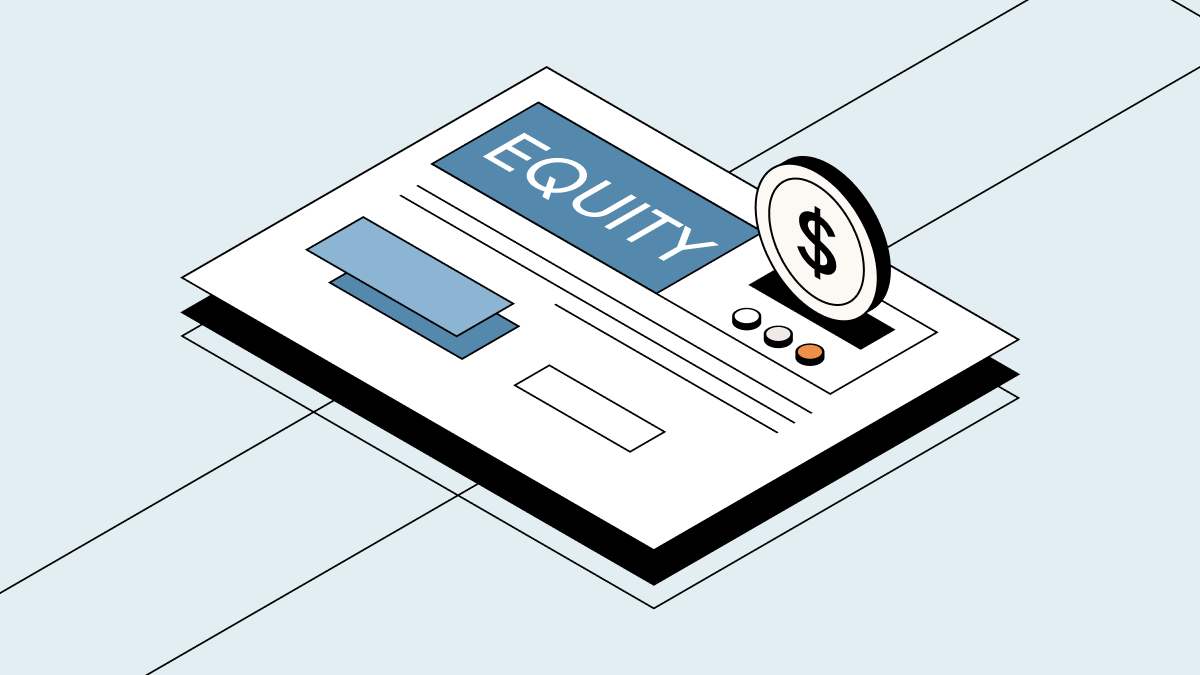What is equity crowdfunding?
Equity crowdfunding is a type of startup funding where early-stage companies raise capital, usually through an online platform, from large groups of investors in exchange for small amounts of equity.
Equity crowdfunding vs. other types of startup fundraising
Equity crowdfunding is an alternative fundraising option to other types of equity financing, in which private companies grant equity in their company to a large group of investors, many of which may be individuals (other types of equity fundraising include investments made by angel investors or larger venture capital firms). Unlike most types of startup investing, equity crowdfunding is not restricted to accredited investors and allows non-accredited investors to participate.
Here are some of the key differences between equity crowdfunding and the most common types of startup financing— convertible securities (like SAFEs and convertible notes) and priced rounds.
|
Fundraising type |
Equity crowdfunding |
Convertibles (SAFEs & notes) |
Priced rounds |
|
SEC-regulated? |
Yes |
Yes |
Yes |
|
Types of investors |
Accredited and non-accredited investors |
Accredited investors, qualified purchasers |
Accredited investors, qualified purchasers |
|
Typical stage of company |
Pre-seed |
Pre-seed, seed |
Series A and beyond |
|
Medium |
Online |
Online or in person |
Online or in person |
Equity crowdfunding vs. other types of crowdfunding
Equity crowdfunding is distinct from other types of crowdfunding because it involves an exchange of ownership for capital (which is why it needs to follow certain SEC regulations). Other types of crowdfunding do not exchange ownership. They include crowdfunding sites like Kickstarter, where those who contribute may receive a reward (like early access to the product developed with the money). Other donation-based crowdfunding sites, like GoFundMe, raise money through donations from the general public.
How does equity crowdfunding work?
To raise money through equity crowdfunding, you can start by making a profile on a crowdfunding site (examples include Republic, NetCapital, StartEngine and WeFunder). Your company’s crowdfunding profile tells potential investors critical information and may include a business plan, pitch deck, and a pro forma financial statement, among other documents.
Many equity crowdfunding platforms allow you to set a fundraising goal, connect with inventors, and receive capital directly through the funding portal.
Regulation crowdfunding
Companies raising money through equity crowdfunding must follow specific U.S. Securities and Exchange Commission (SEC) regulations. Equity crowdfunding is often conducted pursuant to the rules set forth in regulation crowdfunding (also referred to as Reg CF). The SEC allows businesses to raise up to $5M through equity crowdfunding every 12 months, provided several other securities laws are also followed:
-
All transactions must occur through an SEC-registered funding portal or broker-dealer
-
12-month period limits on the amount individual non-accredited investors can invest
-
Information disclosure requirements to the SEC, the investors, and the broker-dealer involved
-
Securities typically cannot be sold again for a period of one year
Regulation crowdfunding offerings are also subject to “bad actor” disqualifications that could prevent an investor or startup from raising capital.
Equity crowdfunding pros and cons
Equity crowdfunding from a broader pool of investors may be a good fit for startups that are unable to raise money from angels or VCs. Some other benefits include:
-
No debt repayment: Unlike small business loans or convertible notes, there is no debt to pay back with equity crowdfunding.
-
More founder control: While there is always a fiduciary duty for the company to act in the best interest of all shareholders, crowdfunding investors do not take board seats or get involved with company operations, so founders often maintain more control.
Keep in mind: Some investors do not like to invest in companies that have taken on equity crowdfunding, so it may be more difficult to raise traditional VC money. Here are some other potential downsides to equity crowdfunding:
-
Equity dilution: Unlike debt-based financing, any equity based financing involves dilution—when you sell part of your company, you own less of it.
-
Investor relationships: There is more to the investor-startup relationship than just cash. Traditional VCs may offer mentorship and guidance to companies on their cap table. And having well-rewarded venture capitalists on your board may burgeon the legitimacy of your company. If you raise only from equity crowdfunding, you may lose out on the benefits of a close investor-entrepreneur relationship.
Crowdfunding and Carta
Carta has relationships in place with the following crowdfunding portals that allow your company to represent your crowdfunding investors as a single line item on your Carta cap table:
-
NetCapital
-
Republic
-
StartEngine
-
WeFunder
If your startup has used other crowdfunding platforms, reach out to us to determine your options. If you haven’t started crowdfunding yet, we can help recommend a trusted platform.



